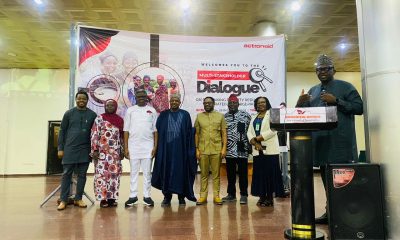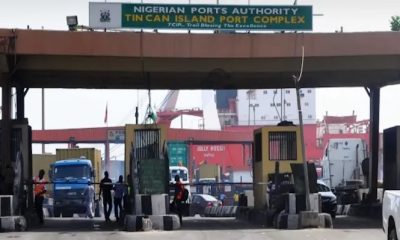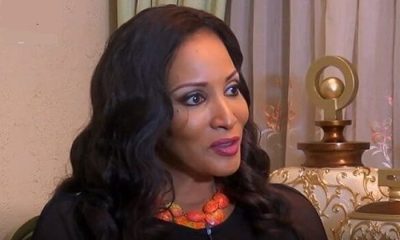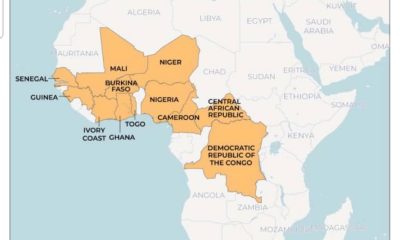FOREIGN NEWS
Nigeria, UNIDO, Partners Join Forces To Lead The Revolution In Mercury-Free Gold Mining
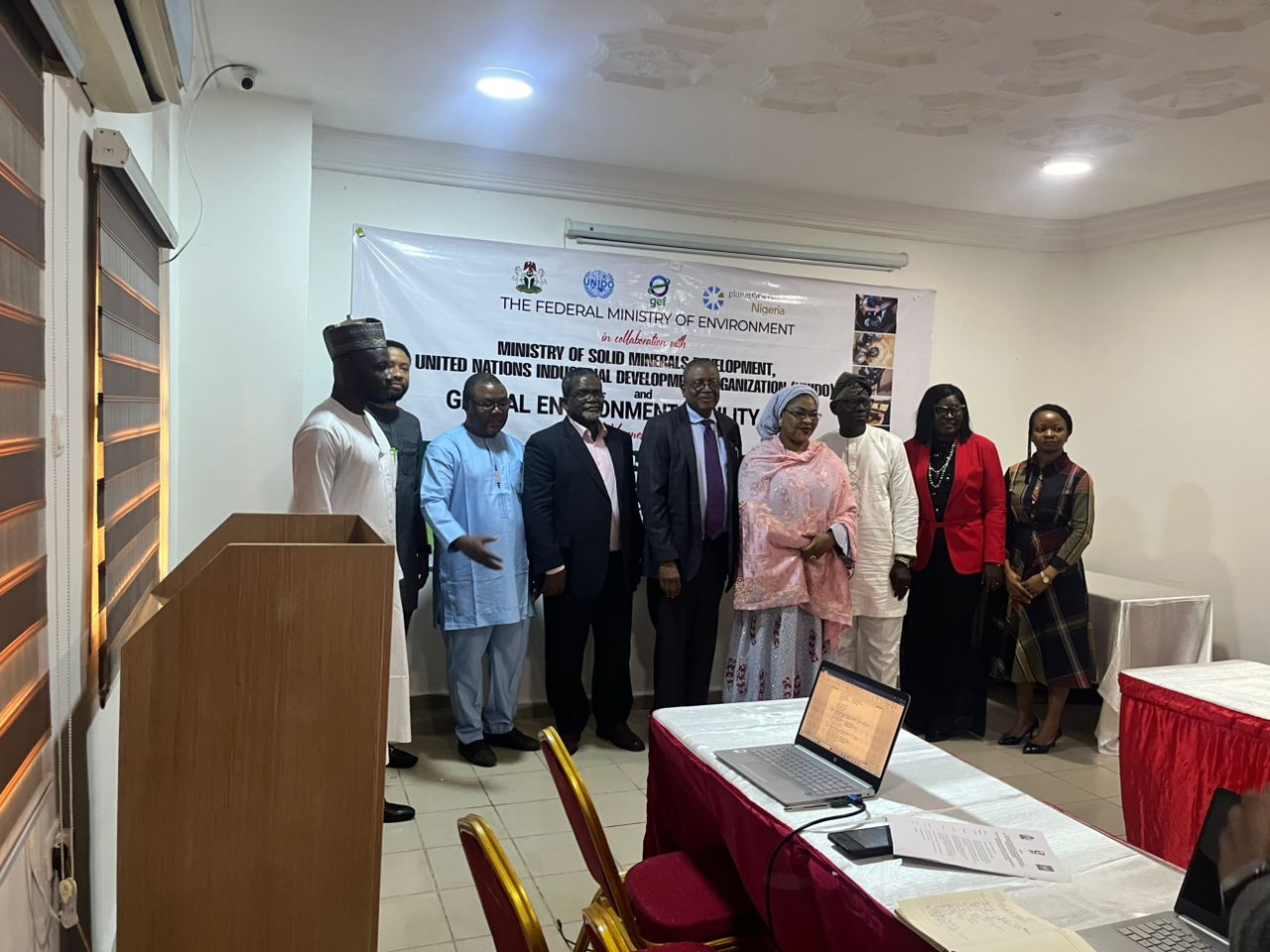
The Federal Ministry of Environment, the Ministry of Solid Minerals Development, the Basel Convention Coordinating Centre for Africa, and the United Nations Industrial Development Organization (UNIDO) have collaboratively established the Project Steering Committee for the GEF-GOLD+ Initiative in Nigeria.
The project, “Enhancing Formalization of Mercury-Free Gold in Nigeria,” marks a major milestone in the country’s commitment to eliminating mercury use in artisanal and small-scale gold mining, promoting cleaner technologies, protecting public health, and fostering sustainable economic growth.
In her inaugural address, Mrs. Bahidja Abubakar (representing the Permanent Secretary, Alhaji Mahmood Adam Kambari) highlighted Nigeria’s dedication to the global fight against mercury pollution through the Minamata Convention. She emphasized that Nigeria has already laid a strong foundation with its National Action Plan (NAP), and that the new GEF-GOLD+ Project builds upon this progress to fully eliminate mercury use in artisanal and small-scale gold mining (ASGM).
“It is with immense satisfaction and a profound sense of responsibility that I stand before you today to formally inaugurate the Project Steering Committee for the GEF-GOLD Plus Nigeria Project, Enhancing the Formalisation of Mercury-Free Gold in Nigeria. You will recall that Nigeria, as a signatory and party to the Minamata Convention on Mercury, has demonstrated its commitment by developing a National Action Plan for the reduction and eventual elimination of mercury use in artisanal and small-scale gold mining between 2017 and 2020. This initiative was undertaken to implement Article 7 of the Minamata Convention concerning the use of mercury in ASGM.”
She also highlighted the grave environmental and health threats posed by mercury pollution, noting that emissions from small-scale mining contribute significantly to global contamination.
“The issue of mercury pollution, particularly within the artisanal and small-scale gold mining sector, presents a significant and pressing challenge to our environment and the health and well-being of our citizens. It is noteworthy that mercury pollution from ASGM contributes approximately 37% of global mercury emissions.”
Mrs. Abubakar outlined the GEF-GOLD+ Project’s strategic approach, emphasizing formalization, access to finance, and the adoption of mercury-free technologies to transform Nigeria’s gold mining landscape.
“The GEF-GOLD Plus Nigeria Project is strategically designed to address this challenge comprehensively through a multi-faceted approach encompassing the promotion of formalisation, improved access to financial resources, and facilitation of the adoption of sustainable mercury-free technologies within the mining sector.”
She further explained the role of the newly inaugurated Project Steering Committee (PSC) in providing leadership, technical guidance, and oversight throughout the project.
“The Project Steering Committee will bear the crucial responsibility of providing strategic guidance and actionable recommendations to effectively support the project’s overarching objectives. Furthermore, the PSC will play a vital role in contributing to informed decision-making processes by offering expert advice, pertinent insights, and diverse perspectives, while facilitating seamless communication and robust collaboration among all relevant stakeholders.”
In closing, Mrs. Abubakar called on all PSC members to dedicate themselves fully to the project’s goals.
“I earnestly urge all distinguished members of this PSC to approach this important task with unwavering dedication, utmost diligence, and a strong spirit of collaboration and mutual respect. Your collective contributions will undoubtedly shape the future trajectory of gold mining in Nigeria and contribute significantly to a healthier, more sustainable, and more prosperous environment for all.”
The Director and UNIDO Representative to Nigeria and ECOWAS, Ambassador Philbert Johnson, reaffirmed UNIDO’s collaboration with the Nigerian government and partners to ensure the successful implementation of mercury-free gold mining practices.
UNIDO is committed to partnering with the Federal Minister of Environment, the Minister of Solid Minerals Development, and the Basel Convention Coordinating Centre for Africa in advancing the implementation of Nigeria’s National Action Plan on Liquor, developed under the Minamata Convention. This project marks a significant milestone in Nigeria’s ongoing efforts to promote a cleaner, safer, more sustainable, and more small-scale gold mining sector.”
He emphasised that the GEF-GOLD+ Project is a key step toward eliminating mercury use in artisanal and small-scale gold mining, addressing both environmental and health hazards caused by unsafe mining practices.
“The JF-GOO Plus Project, titled Enhancing Formalization of Mercury-Free Gold in Nigeria, represents a vital opportunity to address one of the most pressing environmental and public health challenges associated with the use of mercury in artisanal mining. The adoption of poor mining practices and the use of mercury in gold recovery processes have generated serious environmental contamination that could lead to liver and kidney diseases.”
The project’s multifaceted approach formalization, financing, cleaner technologies, and traceable supply chains, was also highlighted.
“By promoting formalization, improving access to finance, introducing mercury-free technologies, and strengthening traceability in gold supply chains, this project will help protect human health, safeguard ecosystems, and foster inclusive economic growth.
“As the Project Steering Committee is inaugurated today, UNIDO wishes to reaffirm its full support for the successful implementation of the project activities. We are confident that through collaborative effort, innovation, and shared commitment, Nigeria will make significant progress towards achieving a mercury-free artisanal gold mining sector.”
UNIDO placed the project within the framework of its Country Partnership Program with Nigeria (2024–2028), linking it to Sustainable Development Goals and long-term national priorities.
“These projects we are discussing today will therefore be delivered within the framework of the PCP. The program for country partnership has six major components: industrial policy and strategic governance; startups and MSME development; special economic zones and clusters; value chain development in agriculture and minerals; sustainable energy and environmental management; and trade capacity building.
“The project also contributes directly to Sustainable Development Goals 9, 12, and 13 on industry, responsible consumption and production, and climate action, respectively.”
On behalf of Eng Dr Mrs B Abubakar, Director Pollution Control and Environmental Health, Federal Ministry of Environment, Mrs Omotunde Adeola emphasized the inauguration of the PSC as a critical moment in Nigeria’s commitment to addressing mercury pollution.
“It is with considerable pleasure that I extend a warm welcome to you all to this inaugural meeting and the inauguration of the Project Steering Committee for the GEF Gold Plus Nigeria project, Enhancing the Formalisation of Mercury-Free Gold in Nigeria. Ladies and gentlemen, today marks a significant milestone in our collective endeavor to address the critical issue of mercury utilization within the artisanal and small-scale gold mining sector in Nigeria.
“The Pollution Control and Environmental Health Department of the Federal Ministry of Environment recognizes the imperative need to mitigate the environmental and public health hazards associated with mercury, and we are resolute and committed to fostering sustainable solutions.”
She stressed that the project’s outcomes will extend beyond the pilot states, contributing to Nigeria’s broader sustainable development agenda.
“This project, with a strategic focus on formalization, enhanced access to finance, and the adoption of mercury-free technologies, is of paramount importance not only for the participating states of Niger, Kaduna, Zamfara, and Kebbi, but ultimately for the sustainable development of our entire nation.”
Mrs. Adeola also highlighted the importance of collaboration and expertise in driving project success.
“We have assembled a diverse and highly capable group of individuals and organisations, each possessing unique and valuable expertise and perspectives. Your insightful contributions will be instrumental in guiding the project towards the successful realization of its objective. I am confident that through robust collaborative efforts, we can create a sustainable and environmentally responsible gold mining sector in Nigeria.”
Ahmed Bah Ibrahim, in his presentation on enhancing formalisation and mercury-free gold in Nigeria, noted that mercury (“Makery”) is a global pollutant heavily used in artisanal small-scale gold mining. The project aims to formalize this sector to reduce mercury emissions, prevent environmental contamination, and maximize economic benefits.
“Formalising the sector is therefore crucial for maximizing its economic benefits, implementing modern environmental standards, and fundamentally reducing and eliminating Makery use. This aligns with the global commitment to sustainable development and responsible mining practice.”
He highlighted alignment with Nigeria’s obligations under the Minamata Convention.
“The Minamata Convention on Makery is a global treaty to which many countries are party, including Nigeria. The objective of this treaty is to protect human health and the environment from anthropogenic emissions and releases of Makery… Nigeria became a party to the Convention on 1 February 2018, and we have gone a long way in implementing the Convention by implementing so many projects.”
Ahmed outlined the project’s objectives and components, emphasizing a holistic, multi-sectoral approach.
“The project objective is to reduce the use of mercury in the ASBM sector in participating states through a holistic, multisectoral, integrated formalization approach. The project aims to increase access to finance and adoption of sustainable mercury-free technologies in the accessible gold supply chain.”
He also explained the implementation structure and partnerships. “The four executing agencies, with the support of this committee, will be responsible for overseeing the project implementation and will also offer strategic guidance and recommendations to support the project’s objectives. The project reporting format is biannual, and reports are also submitted to the global Planet Gold platform.”
Finally, Ahmed addressed the project’s global and national scope and timeline.
“The project aims to support countries in meeting their commitments under the Minamata Convention with a concrete target of directly reducing 123 tons of mining emissions or releases from the ASBM sector. The project duration is five years, but it is already two years behind schedule. There might be room for the project to apply for an extension.”
-
CRIME4 years ago
PSC Dismisses DCP Abba Kyari, To Be Prosecuted Over Alleged $1.1m Fraud
-
FEATURED4 years ago
2022 Will Brighten Possibility Of Osinbajo Presidency, Says TPP
-
FEATURED2 years ago
Buhari’s Ministers, CEOs Should Be Held Accountable Along With Emefiele, Says Timi Frank
-
BUSINESS & ECONOMY2 years ago
Oyedemi Reigns As 2023’s Real Estate Humanitarian Of The Year
-
SPORTS2 years ago
BREAKING: Jürgen Klopp Quits Liverpool As Manager At End Of Season
-
SPORTS2 years ago
Could Liverpool Afford Kylian Mbappe For €200 million? Wages, Transfer Fee
-
ENTERTAINMENT2 years ago
Veteran Nigerian Musician, Basil Akalonu Dies At 72
-
FEATURED2 years ago
Tribunal Judgement: Peter Obi Warns Of Vanishing Electoral Jurisprudence, Heads To Supreme Court
-
BUSINESS & ECONOMY2 years ago
Oyedemi Bags ‘Next Bulls Award’ As BusinessDay Celebrates Top 25 CEOs/ Business Leaders
-
FEATURED4 years ago
2023 Presidency: South East PDP Aspirants Unite, Demand Party Ticket For Zone

